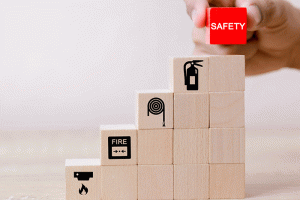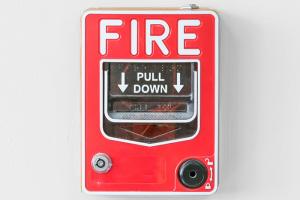Program inspires biggest energy losers
If you've ever watched the TV show "The Biggest Loser," you realize how adding competition into the mix can inspire people to achieve greater results than they would on their own. A weight-loss study published earlier this year found that programs that include some form of competition spur people to lose more weight than those without it. People want to be seen as the most successful in the group, and the competition may help a participant to skip dessert or walk around the block a few more times.
Hospitals also can use competition through the revamped Energy Efficiency Challenge (E2C) program. Instead of shedding pounds, participating health care facilities are looking for ways to drop their energy use and utility bills.
The E2C program has long rewarded hospitals for cutting their energy use. The program was created in 2006 as the Energy Efficiency Commitment. The E2C program was expanded and renamed the Energy Efficiency Challenge this year to reflect the addition of team competitions.
ASHE will continue giving E2C awards to individual hospitals or health care campuses that reduce energy use by at least 10 percent over a 12-month period. But the expanded E2C program also rewards hospitals for success in creating team challenges.
The competition has provided motivation for health care facilities to cut energy costs. For example, a three-year competition was held in ASHE Region 10, which includes northwestern states.
Hospitals participating in the challenge collectively saved the electricity equivalent of 434,808 MRI scans and prevented the emission of more than 6,500 metric tons of carbon dioxide. Region 10 participants were able to save more than $680,000 in energy expenditures.
The E2C program provides resources for hospitals, including data and best practices. In addition to the significant cost savings that hospitals can find when cutting energy use, facilities that participate in the team challenge often find other benefits.
The team challenge can create camaraderie and networking. Participants can swap ideas and share success stories to help each other reach energy-efficiency goals. Creating a challenge program can attract positive media exposure, showing the community a facility's dedication to cutting energy use. Hospitals can use press releases to call attention to awards distributed through the program.
In 2014, ASHE will be adding a few new awards to the program. The Leadership in Energy Efficiency Performance award will be given to consistently high-performing hospitals or health care campuses that have an Energy Star rating of 90 or better for three consecutive years — quite a feat. ASHE also will be giving a group award. The E2C Health Care System Leader Award will be given to groups of facilities in which all members have met energy-efficiency improvement measures.
To find out more about the program and begin tracking your numbers — the first step to becoming "The Biggest Loser" — visit the Sustainability Roadmap at www.sustainabilityroadmap.org/e2c.
By Deanna Martin, senior communications specialist for ASHE.
ASHE insight
Important monographs available
ASHE makes important resources available to members. Following are two recently released monographs that can be accessed by ASHE members as free PDFs at www.ashe.org/resources/management_monographs.
• Life Safety Code Comparison. The 2012 edition of the National Fire Protection Association's Life Safety Code offers new design and compliance options for health care facilities that didn't exist in previous editions. This ASHE monograph provides an exhaustive list of the changes in the new edition and a detailed comparison with the 2000 and 2009 editions.
• Room Ventilation and Airborne Disease. This ASHE monograph examines research on how room ventilation affects airborne-disease transmission in health care facilities. Farhad Memarzadeh, Ph.D., P.E., examines findings that consider the effects of air changes per hour on infection transmission.
ASHE Blog offers free subscription service
The ASHE Blog keeps members up-to-date on developments and offers a free subscription service so that members can get posts delivered directly to their email inboxes. To receive this service, visit www.ashe.org/blog, sign in and click "Subscribe" in the black bar near the top of the page.




